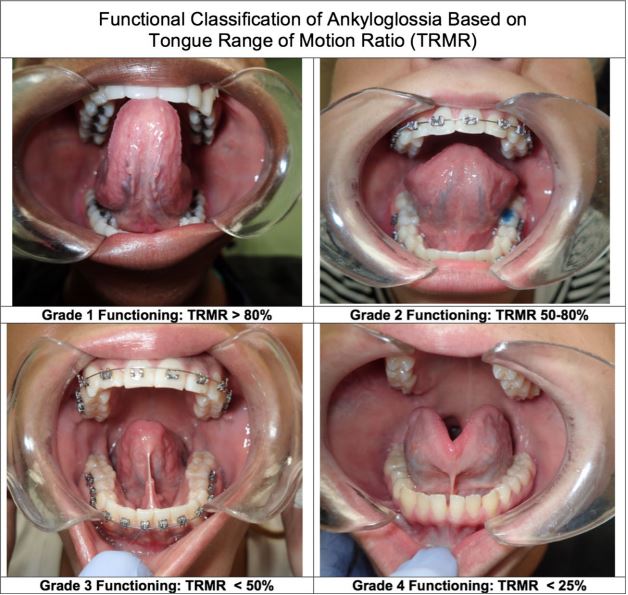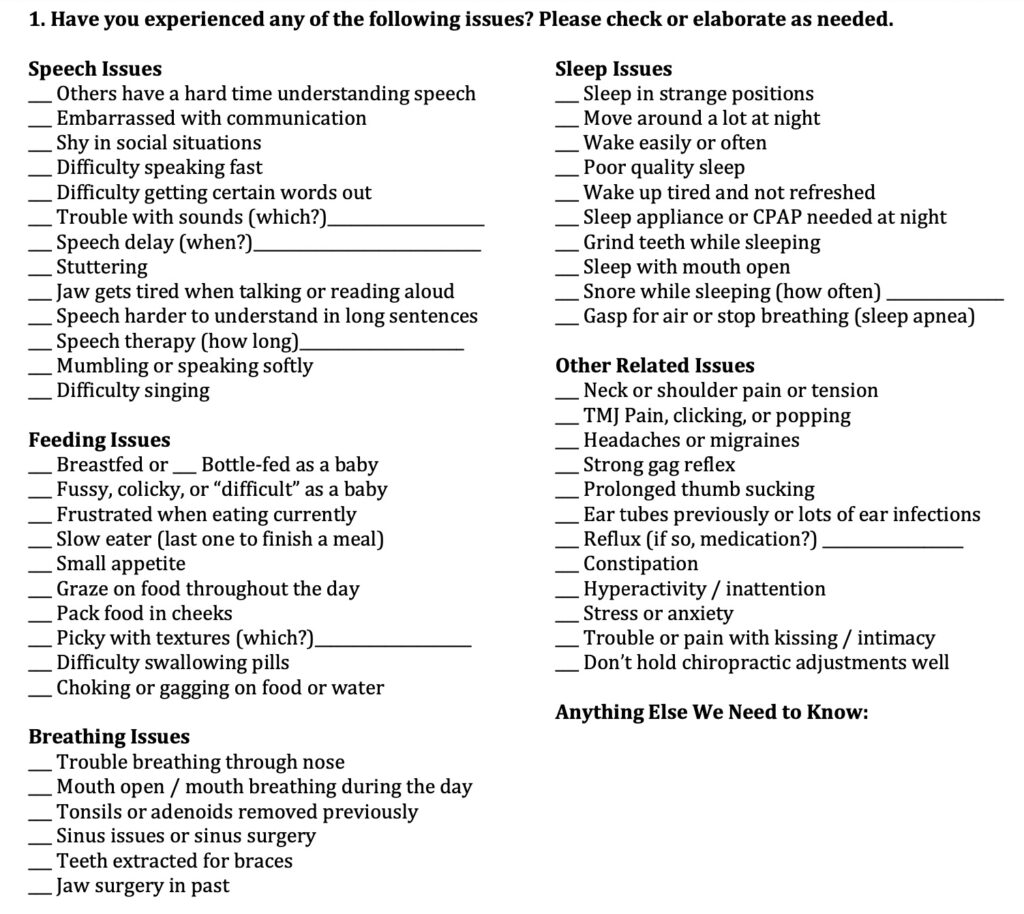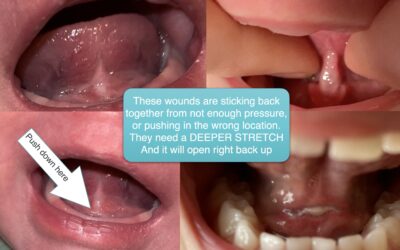These are common questions we receive from parents daily. We have many parents who come with their children and are wondering if it’s hereditary or if mom or dad has a tongue-tie. The answer is YES, adults can certainly be affected by a tongue-tie or restricted tongue (it doesn’t have to be to-the-tip), as the tissue does not stretch out or go away. First of all, it’s always Dad’s fault! Like everything is, duh! Just kidding… but seriously, it seems more often than not, Dad’s tongue is more restricted. That was my case as I had a tongue-tie and passed it to my three girls.
How common is a tongue-tie in adults? Estimates for infants and children are around 25% of babies and children are affected by a restricted tongue, or tongue-tie. It would follow then that adults likely have a similar incidence of tongue-tie of 25% if properly checked. That is assuming that there are no environmental factors recently (folic acid, some other toxin) that are increasing rates.
The next question is always, “how can you tell?” So the best quick and dirty test is to open wide and lift up your tongue and try to touch behind your top teeth. Look in a mirror, and if you can only lift about halfway or less, there is a significant tongue restriction. Your mobility is limited. Even some people who can lift up past halfway might be raising the floor of the mouth and “compensating” so they could have restricted tongue mobility but a functionally “normal” appearance. But keep in mind, the symptoms an adult (or a baby or child) has are more important than the appearance to properly diagnose a tongue-tie/tongue restriction. If there are no symptoms (see Assessment Sheet below), then there’s nothing to do. If there are symptoms, it’s worth a consultation with a knowledgeable provider.

The next factor in determining whether a full consultation is warranted is determining what symptoms the adult has that might be related to a tie. Typically tongue-tied adults will have neck and shoulder tension, headaches or migraines, sleep difficulties (snoring, teeth grinding, sleep apnea, poor quality sleep, feeling fatigued/brain fog), sometimes slow eating or trouble swallowing pills, speech difficulties (gets tired when talking, mumbling, stuttering, or a history of speech therapy or speech delay as a child). Lastly, there are other things related to tongue-ties, including breathing issues (mouth breathing), stress and anxiety, reflux, and other GI symptoms like constipation, strangely enough. You don’t have to have all of these issues, as some adults or kids have perfect speech but still have a tongue-tie. It’s about the overall picture of how many symptoms you have on the assessment sheet. Check the sheet below for the full list of symptoms we have seen impact adult patients (and often see resolution after a proper tongue-tie release).

The first step we recommend adults pursue is to reach out to a myofunctional therapist. This is a professional who can work in person or via teletherapy and can help to get your tongue muscles ready for a release and encourage proper tongue and lip posture, nasal breathing, and proper swallowing. Without myo, the release will not be as effective, and it would be similar to having knee surgery without physical therapy. You might see some positive changes initially, but unless the habits that have existed for decades are addressed, you will fall back into old habits and compensations and lose progress.
We no longer treat adults, but there are many excellent providers who can help with a proper frenuloplasty. Many will use the same laser we use, a state-of-the-art CO2 laser and provide a frenuloplasty, which is a fancy word for tongue-tie surgery that removes the restriction and sutures (stitches) it up with dissolvable sutures. This procedure is more complete than just a clip or a snip with scissors, as we can visualize the whole restriction and selectively remove the connective tissue or fascia fibers that are keeping your tongue from normal mobility. The procedure is virtually painless with just a local anesthetic (no sedation required) but is sore afterward for a couple of days (although nothing like getting tonsils out). Ice cream, Advil, and Tylenol, and most adults do just fine and often notice results within the first couple of days with less neck tension and higher quality sleep the first week or so. Working with a myofunctional therapist first will help you to get the best results.
If you’d like to learn more about a tongue-tie release in adults, (we treat ages 1 day old through 18 years old in our office) search for a myofunctional therapist in your area (or you can be seen virtually via Zoom). For more research, also check out Zaghi 2019 on adult releases or our article Baxter 2020 about changes in children after a release (and symptoms that also see improvement in adults). TRMR photo is from Yoon 2017.


